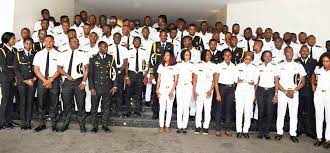
Stakeholders in the maritime industry have raised concerns over the challenges that seafarers who hold Nigeria’s Certificates of Competency (COC) face on the international stage.
Despite the universal standardization of COCs, Nigerian seafarers struggle to secure employment abroad, a problem attributed to the perceived quality of training received at the Maritime Academy of Nigeria (MAN) in Oron.
Speaking with Shipping Position Daily, a foremost ship owner and Master Mariner, Captain Emmanuel Iheanacho, stated that the COCs are universally standardized and should theoretically be recognized worldwide. However, he pointed out that the challenge lies not in the certification itself, but in the perception of how it is obtained.
While praising MAN Oron for its well-managed operations and commendable facilities, Captain Iheanacho highlighted that despite these positives, the institution has not fully achieved the primary objective of its establishment, which is to produce Standard Training, Certification, and Watchkeeping (STCW)-compliant officers.
Captain Iheanacho who is a former Minister of Interior elaborated on this by criticizing the focus on non-essential facilities at MAN Oron. He argued that while these amenities may enhance the campus experience, they do not contribute to the rigorous training required for seafaring.
The former minister however explained that the presence of such facilities could lead international employers to doubt the practical training and resilience of Nigeria-trained seafarers.
Explaining the perception, he said: “The COC is the same everywhere. You don’t have COC that applies to Nigerians and you have a COC that applies to people in a different type of country. But why you cannot force the people to employ Nigerian seafarers, is because of their perception as to what you do to get your COC. So, if you are beautifying Oron all the time and Oron has got a swimming pool that’s Olympic size, and has lawn tennis courts, you don’t swim to become a seaman, you don’t play lawn tennis to become a seaman. So, you’re developing a different culture.
“What people look at is, this man has COC from Nigeria. Where did he go? He went to Oron. He was swimming all the time. Do you blame them for jumping to the conclusion that you may not be able to endure the work on board a ship?” Iheanacho asked.
Also speaking, a new maritime graduate and member of the Nigerian Merchant Navy Officers & Water Transport Senior Staff Association (NMNOWTSSA); Officer Isaac Utibe-Abasi criticized the insufficient vetting and monitoring by government agencies responsible for quality education and maritime training. He stressed the need for rigorous oversight before issuing licenses to maritime academies and institutions, as well as periodic assessments to ensure they maintain high standards.
Furthermore, Utibe-Abasi highlighted the insufficient collaboration between coastal states and shipping companies in the areas of training and certification. This lack of partnership, according to him, restricts opportunities for practical training, internships, and exposure to real-world maritime operations, which are crucial for developing competent seafarers.
Addressing these issues, Utibe-Abasi underscored the urgent need for comprehensive reforms in Nigeria’s maritime education and training system, which he noted would significantly enhance the credibility of Nigerian COCs and improve the employability of Nigerian seafarers in the international maritime industry.
Amidst ongoing debates among stakeholders about the international acceptance of certifications awarded by maritime institutes in Nigeria, a Senior Lecturer at the Federal College of Fisheries and Marine Technology (FCFMT), Dr. Fola Ojutalayo provided clarity and assurance that the certifications provided by accredited Nigerian maritime institutions are fully-approved and accepted internationally.
Dr Ojutalayo highlighted that Nigerian Maritime Administration and Safety Agency (NIMASA) as Nigeria’s maritime administration, is the only regulatory agency with the capacity and legal responsibility to certify maritime institutions in the nation. He further clarified that any certification approved by a maritime administration, that is itself certified by the IMO must be accepted internationally.
The lecturer reassured stakeholders that the training and certification provided by his institution are fully accredited, certified, and internationally recognized, ensuring that Nigerian seafarers can confidently seek employment and opportunities worldwide.
“This institute that provides these services is fully accredited, certified and approved by NIMASA and anyone that any administration approves all over the world must be accepted by any other country, because the administration is representing IMO in that country.
“So that is why you can see Indians can come here and work, Nigerians can travel to Singapore and work, wherever you get yourself, as long as it is certified and approved by an IMO-approved administration” Ojutalayo said.















